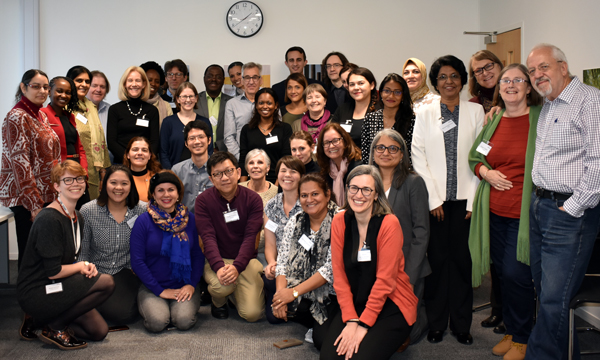The STRiDE project started in October and aims to build research capacity and provide much-needed evidence on dementia care
The STRiDE project started in October and aims to build research capacity and provide much-needed evidence on dementia care
15 Nov 2019

In March 2018, forty-two STRiDE colleagues came together at LSE for a kick-off meeting (and a group photo!). The meeting included a workshop to co-develop a Theory of Change map for the project, which is an outcomes-based approach the project is using to describe how it will bring about specific outcomes through a logical sequence of intermediate outcomes. The workshop drew on participants’ knowledge and experiences to map the causal pathway of the STRiDE programme, the interventions required to achieve our aims, the assumptions we are making and the indicators that could be used to measure each outcome along the pathway.
The impact we ultimately want to achieve? People living with dementia and their carers live well.
How far can the STRiDE project alone achieve this? We will be aiming to ensure that there is an improved understanding of the impact, prevalence, costs and stigma of dementia in various low- and middle-income country contexts among relevant stakeholders such as researchers, health professionals, and policy makers, informed media, people with dementia and their caregivers to support implementation of national dementia plans, based on results from the project. The process from this to people living with dementia and their carers living well may be beyond this project but we hope to work with partners and stakeholders to support future activities.
Led by the teams in the seven countries, plans are now underway to hold a series of national level workshops with all the key stakeholders to develop a Theory of Change map for how the project will create impact at the national level.
